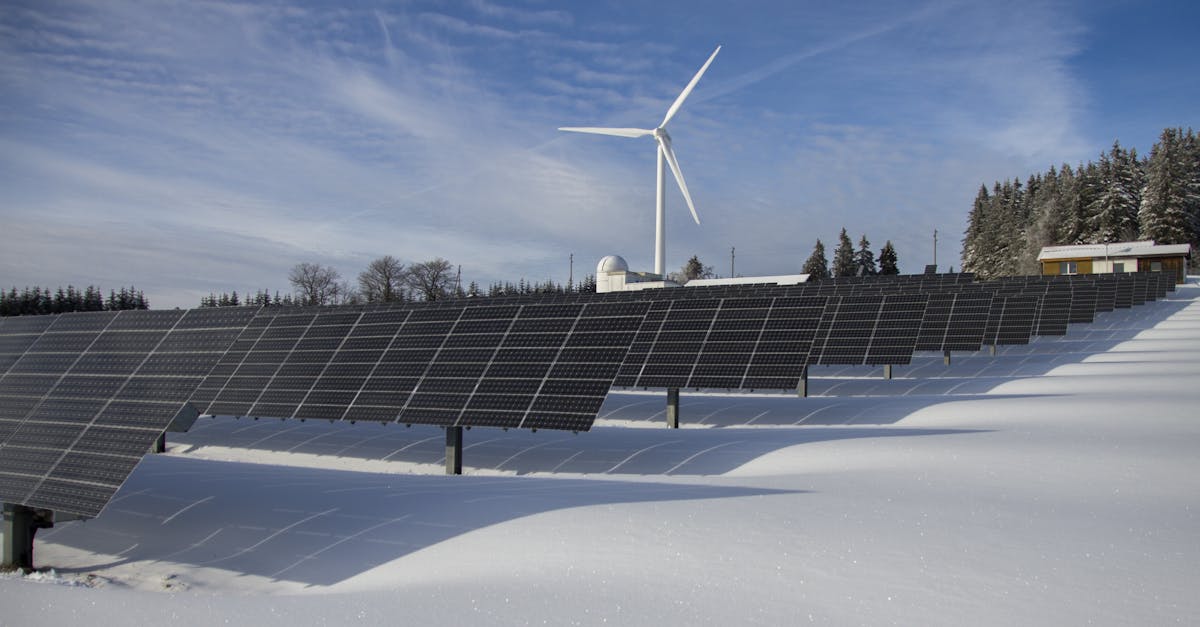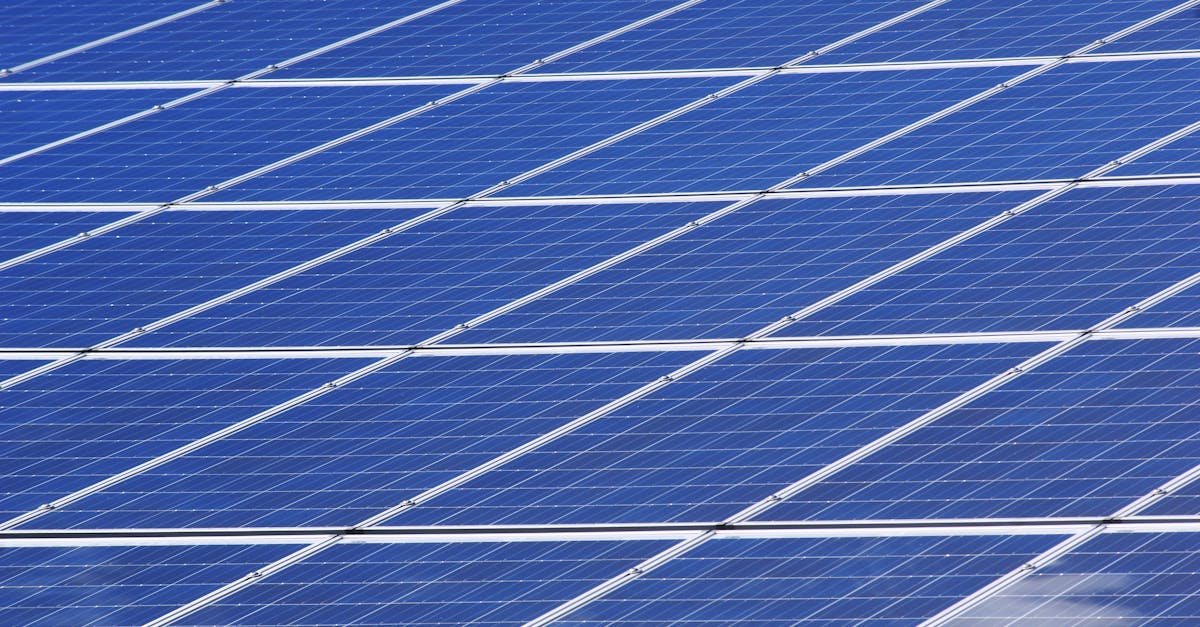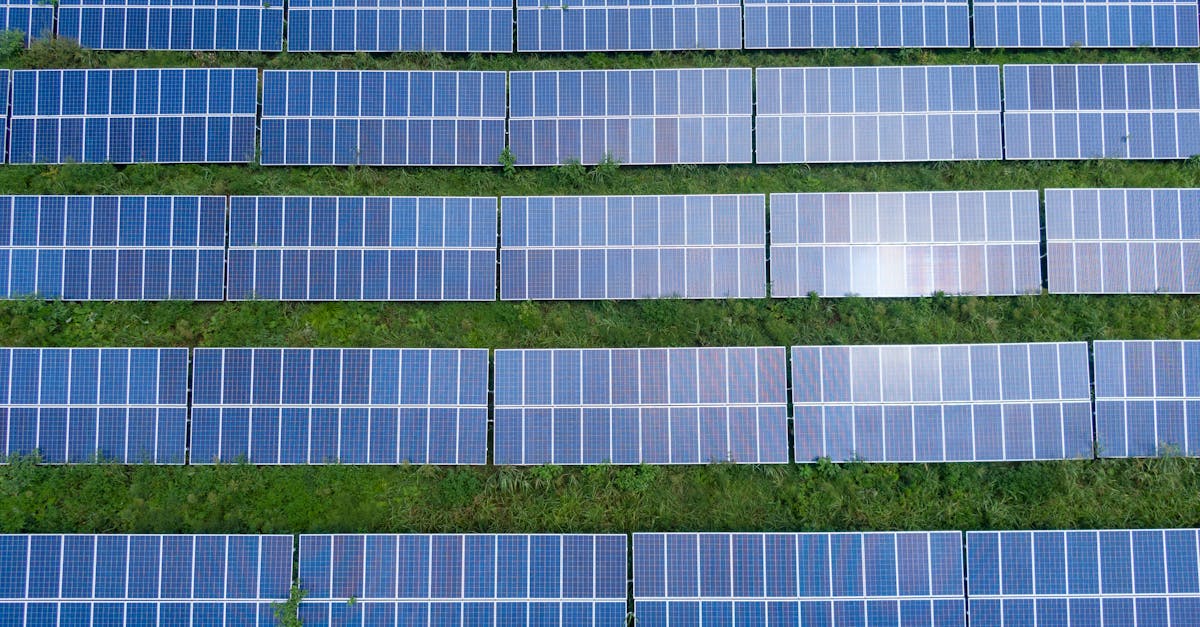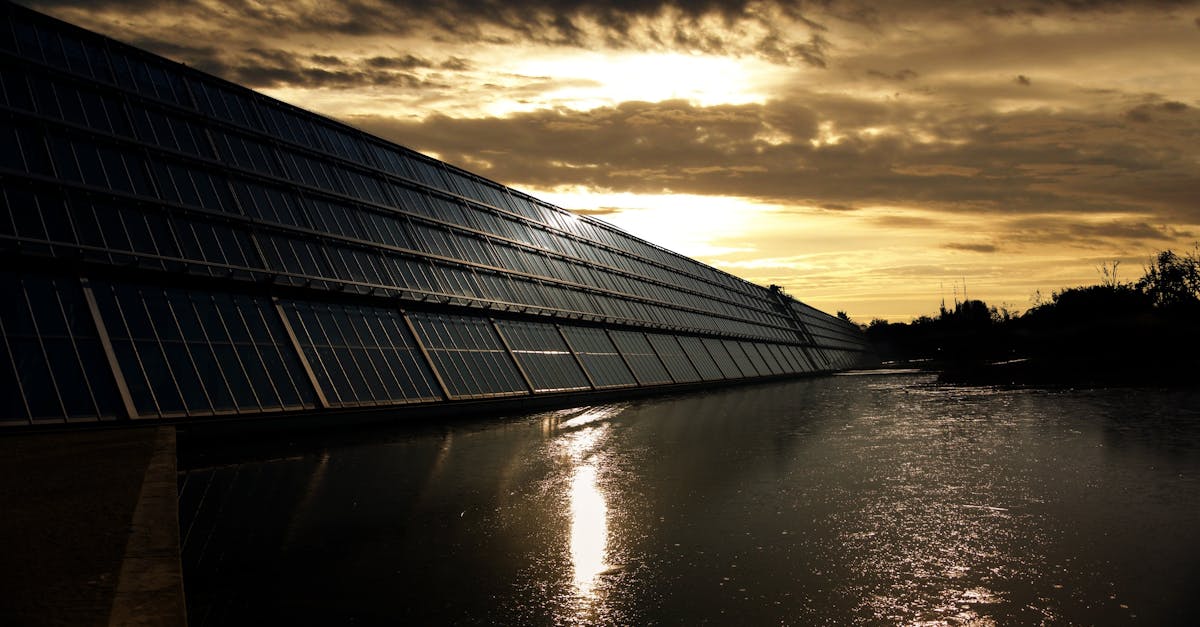
Table Of Contents
Impact of Listed Buildings on Solar Panels
The presence of listed buildings introduces specific challenges when considering solar panel installation. These structures often have protected status due to their architectural or historical significance. As a result, any modifications — including the addition of solar panels — may require careful scrutiny and permission from local councils. This ensures that the character and integrity of the building are preserved, aligning with heritage conservation guidelines.
Homeowners in conservation areas should also be aware that solar panel installation can be subject to additional restrictions. Different regulations may apply based on the local authority's policies regarding renewable energy and historic preservation. In some cases, small changes might be allowed, while larger installations could face greater obstacles. Engaging with planning authorities early in the process can help clarify requirements and streamline the approval journey.
Special Considerations for Historic Properties
Historic properties often come with strict regulations regarding any alterations or additions, which means Solar Panel Installation may require careful planning and consideration. The conservation of the building’s character is paramount, and any proposed changes must not detract from its aesthetic or historical significance. In many cases, listed building consent is necessary before proceeding, especially if the installation would alter the building's fabric or appearance. Consulting with local planning authorities early in the process can clarify what is permissible.
Additionally, homeowners should evaluate the visual impact of Solar Panel Installation on both the property itself and its surrounding environment. In some cases, ground-mounted systems may be more acceptable than roof-mounted options, particularly if they are less visible from key vantage points. Engaging with heritage organisations can provide valuable insights and guidance on best practices, ensuring that any installation aligns with preservation goals while still allowing for the benefits of renewable energy.
Roof-mounted vs. Ground-mounted Solar Panels
When considering solar panel installation, the choice between roof-mounted and ground-mounted systems is essential. Roof-mounted panels generally utilise the existing structure of a building, making them a space-efficient option. This type of installation can be less intrusive and may not require extensive groundwork. The angle and orientation of the roof can significantly influence the efficiency of solar energy capture, allowing for better performance in regions with ample sunlight.
Ground-mounted solar panels offer a different set of advantages. These systems can be tailored more easily to maximise sunlight exposure, often leading to increased energy generation. They require more space, which can be a limiting factor for urban residences. Ground-mounted installations can also facilitate easier maintenance and potential future expansion, providing flexibility for homeowners wanting to increase their solar capacity. Understanding these distinctions is crucial for anyone considering solar panel installation.
Planning Permission Differences
The type of planning permission required for solar panel installation can vary significantly based on their mounting position. Roof-mounted panels generally fall under permitted development rights, provided certain conditions are met. These conditions often include considerations related to the size of the panels and their placement on the roof. However, in conservation areas or for listed buildings, different rules may apply, necessitating formal planning permission regardless of the usual exemptions.
Ground-mounted solar panels typically require planning permission regardless of the specific circumstances. This is due to their potential impact on the surrounding landscape and visual aspect. Factors such as location, proximity to boundaries, and overall size play crucial roles in determining whether formal approval is necessary. Homeowners considering ground-mounted solar panel installation should check local authority guidelines to ensure compliance and avoid potential penalties.
When to Apply for Planning Permission
When considering solar panel installation, it's essential to determine whether you need planning permission based on specific criteria. Generally, if the installation adheres to established guidelines and does not detract from the aesthetic value of the property or surrounding area, formal approval may not be necessary. However, certain factors can trigger the need for planning permission, particularly if the solar panels are being installed on a listed building or within a conservation area.
Engaging with your local planning authority can clarify what is required in your situation. It is advisable to apply for planning permission if you think your solar panel installation might cause issues or if your property falls under unique categories that influence regulations. Early consultation can save time and potential complications down the line, ensuring that your installation complies with legal requirements and local policies.
Situations That Require Formal Approval
Several situations may necessitate formal approval for solar panel installation. If the property is located within a conservation area or is classified as a listed building, additional scrutiny is often required. Planning authorities may impose specific restrictions to ensure that the aesthetic and historical value of the area is preserved. Such regulations can influence whether the solar panels can be installed at all, or dictate their design and placement.
Moreover, if the solar panels are to be installed on a building that exceeds certain height restrictions or affects the overall appearance of the structure, permission may also be needed. Ground-mounted systems may not be exempt from this requirement, especially if they interfere with the local environment or landscape. Consulting with local planning offices can provide clarity on the specific regulations applicable to your solar panel installation.
FAQS
Do I need planning permission for solar panels on my home?
In most cases, you do not need planning permission for solar panels if they meet certain conditions, such as being installed on a non-listed building and not exceeding specific size limits. However, it's essential to check local regulations, as requirements can vary.
Are there special considerations for installing solar panels on listed buildings?
Yes, if your property is a listed building, you will need to apply for planning permission before installing solar panels. The local planning authority will assess the impact on the building’s historical and architectural significance.
What are the differences in planning permission requirements for roof-mounted and ground-mounted solar panels?
Roof-mounted solar panels typically have more lenient planning regulations compared to ground-mounted installations, which may require permission due to their potential impact on landscaping and the surrounding environment.
When should I apply for planning permission for solar panels?
You should apply for planning permission if your installation does not comply with permitted development rights, such as if you live in a conservation area or if you are planning to install solar panels on a listed building.
How can I find out if my property requires planning permission for solar panels?
The best way to determine if you need planning permission is to contact your local planning authority. They can provide guidance based on your property's specifics and local regulations.




